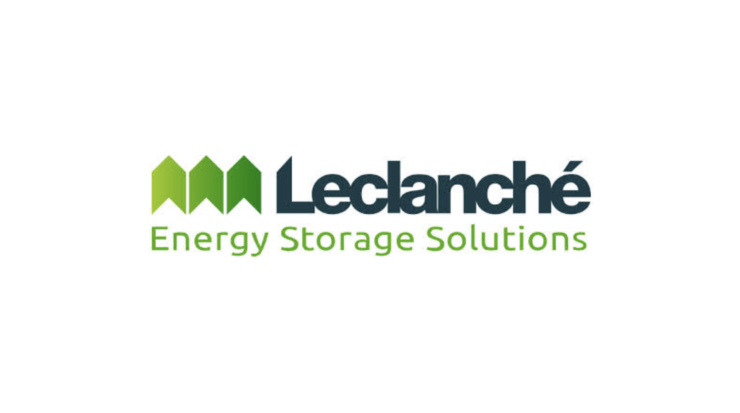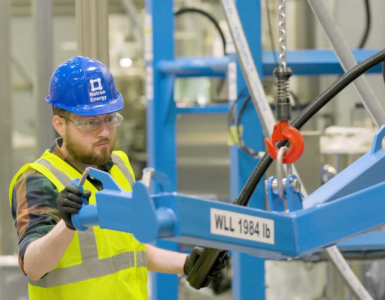Leclanché Enhances Value Proposition with New PFAS-Free and Niobium Oxide Cells, Enters Testing Phase with Key Partners.
Amid growing concerns surrounding the impacts of PFAS, which stands for per- and polyfluoroalkyl substances, a chemical widely used in the production of lithium-ion batteries, Europe is setting out plans to restrict its usage. With many suppliers in the battery industry set to be heavily affected by the plans, Leclanché SA (SIX: LECN), which has been using a water-based binder process in its cell production for over 13 years, is prepared for these new restrictions.
The Swiss company is attracting strong interest from a number of industrial players, including automotive OEMs, in the water-based electrode manufacturing and PFAS free technology. Leclanché will be supplying lithium-ion cells which are entirely PFAS free to a number of partners, with the first samples planned to be delivered in the coming weeks.
In addition to the traditional graphite-based anode cells for high energy density applications, Leclanché has developed cells using the same water-based manufacturing process but with niobium oxide electrodes. These cells show a lot of promise for high performance and fast charge capabilities. A growing number of clients and partners are now approaching Leclanché for the testing of these cells.
🔥 What about we co-host a webinar? Let's educate, captivate, and convert the battery economy!
Batteries News is the global go-to online magazine for the battery industry, we can help you host impactful webinars that become a global reference on your topic and are an evergreen source of leads. Click here to request more details
The recognition by the market of PFAS free electrode technology and its ability to address both energy and power applications, is a key milestone in the current regulatory environment.
PFAS comprises a combination of man-made chemicals that have been extensively incorporated into a wide variety of industrial and consumer products since the 1950s. However, concerns surrounding PFAS have gained significant traction since the early 2000s due to their prolonged persistence in the environment and the potential adverse impacts on human health. Exposure to PFAS has been associated with a range of health issues including cancer, immune system dysfunction, reproductive health and developmental disorders. Consequently, a substantial shift is underway to eliminate their usage.
Water-Based Manufacturing Process Without PFAS or Toxic Solvents
For more than 13 years, Leclanché has been a global pioneer in utilising low-cost, green manufacturing methodology for lithium-ion battery electrodes using different water-based binder solutions in the mixing and coating processes. The water-based binder process technology helps to eliminate the use of PFAS binders and avoids any reliance on highly toxic organic solvents. This technology enables the company to no longer rely on organic solvents such as NMP and replace them entirely with water. This choice not only eliminates the environmental risks, but also ensures the safety of employees involved in the production process by drastically reducing health hazards. There is also no solvent recovery system required, and the emissions are limited to steam that can be released into the atmosphere without further treatment.
Leclanché has submitted a response to the public consultation conducted by European Chemicals Agency (ECHA) regarding the restriction of PFAS to inform the European Commission that a viable alternative has been in operation within Europe for over 13 years at an industrial scale.
Restrictions Expected in European Regulations
ECHA is actively evaluating the potential restriction of over 10,000 types of PFAS. The proposed measure aims to mitigate PFAS emissions into the environment, enhancing both the safety of consumer products and industrial processes. Expected to be enacted through the REACH regulation, this restriction is scheduled to take effect in 2025. This development is of particular significance for the European battery industry, as it coincides with a critical phase requiring substantial investment to establish a comprehensive European battery value chain.
PFAS in the Battery Industry
Today, PFAS are used prominently in the majority of lithium-ion battery cell production, particularly as a binder in the electrode manufacturing process, combined with toxic solvents such as NMP. Notably, PFAS utilised in batteries can be released back into the environment during the recycling process of production scraps or batteries at the end of their lifespan.
READ the latest Batteries News shaping the battery market
Leclanché Enhances Value Proposition with New PFAS-Free and Niobium Oxide Cells, Enters Testing Phase with Key Partners. source








